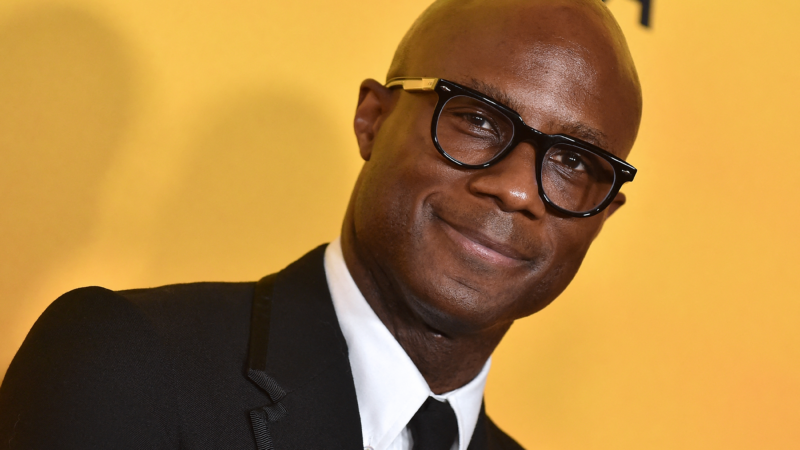Percival Everett wins the National Book Award fiction prize
Percival Everett, the prolific author of dozens of books, won the fiction prize Wednesday at this year’s National Book Awards. He won for his book James, which retells the story of Huckleberry Finn but from the perspective of Jim — the escaped slave Huck becomes friends with.
At his acceptance speech, Everett let his work speak for itself and stuck to thanking family, friends and colleagues. But he did open with a jab at artificial intelligence, saying it’s “no replacement for the real thing.”
The 75th National Book Awards ceremony took place in New York City Wednesday night. The actress, comedian and recent author Kate McKinnon hosted the show and took her own shots at A.I. in her opening monologue. “A book is an offering. It’s a hand in the darkness, a way of saying ‘I know, isn’t this crazy?'” she said. “And that’s something a robot will never be able to do.”
The non-fiction award went to Jason De León, who’s book Soldiers and Kings: Survival and Hope in the World of Human Smuggling is an anthropological look at the people who bring migrants over the southern border. In his speech, he addressed the recent presidential election, saying “I will not accept the dystopian American future of unchecked corruption, border walls, misogyny, mass deportations, transphobia, climate change denial and all this other garbage that this incoming administration wants to propagate and profit from.”
Lena Khalaf Tuffaha, winner of the poetry award, also addressed politics — criticizing both major U.S. political parties. Her collection, Something About Living, is an expansive look at Palestinian history and the Palestinian diaspora. Tuffaha encouraged people to “demand that any administration — no matter what letter it has at the end of its name… should stop funding and arming a genocide in Gaza,” she said.
The prize for translated literature went to Yáng Shuāng-zǐ and her translator Lin King, for their book Taiwan Travelogue. The book is a novel about the relationship between a Japanese novelist and her Taiwanese interpreter. But it’s also about the work of translation, as it presents itself as a translation of a rediscovered text by a Japanese writer. And Shifa Saltagi Safadi won the award for Young People’s Literature for her book Kareem Between, a coming-of-age novel about a Syrian refugee.
Hosted by the National Book Foundation, the prizes are among the most prestigious awards in American letters. According to a statement from the foundation, a total of 1,917 books were submitted for consideration this year: 473 in Fiction, 671 in Nonfiction, 299 in Poetry, 141 in Translated Literature, and 333 in Young People’s Literature.
Millions face wintry weather for what could be a record-setting holiday travel season
More than 119 million people are expected to travel for Christmas and Hanukkah, which both fall on the same day this year, through the New Year, according to AAA.
Review by Senate Democrats finds more unreported luxury trips by Clarence Thomas
A report by Democrats on the Judiciary Committee found additional travel taken in 2021 by Thomas but not reported on his annual financial disclosure, including trips on private jets and a yacht trip.
Where did Barry Jenkins feel safe as a kid? Atop a tree
Director Barry Jenkins is best known for films like "Moonlight" and "If Beale Street Could Talk." On Wild Card, he opens up about where he felt the safest as a kid.
Israeli strikes across Gaza kill at least 20, including five children
Israeli strikes across the Gaza Strip overnight and into Sunday killed at least 20 people, including five children, Palestinian medical officials said.
This Christmas I’ll be grieving. Here’s how I’ll be finding joy.
Since her husband's death, newscaster Windsor Johnston has been looking for ways to recapture joy and continue her healing journey — one that's taken her to a place she'd never expected.
I discovered one way to fight loneliness: The Germans call it a Stammtisch
Modern life can be lonely. Some are looking to an old German tradition – of drinking and conversation – to deepen connection through regular meetups.





